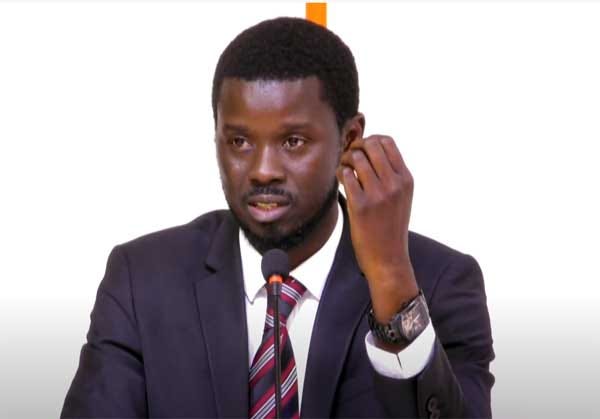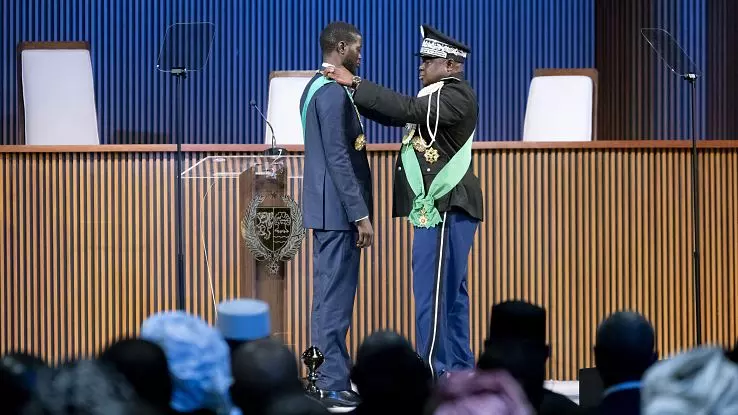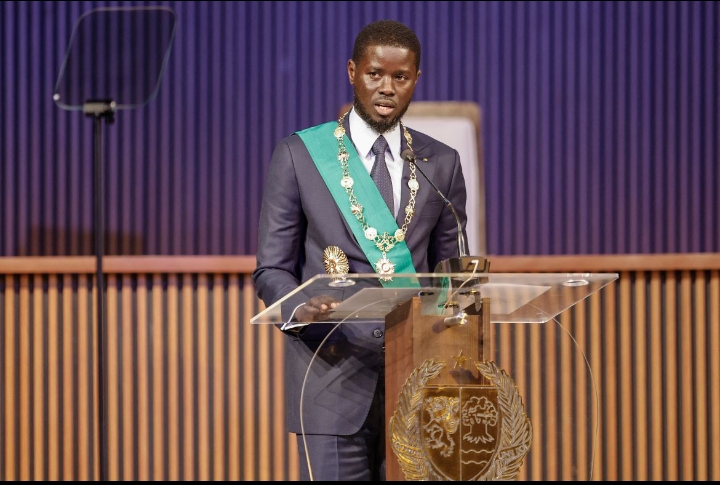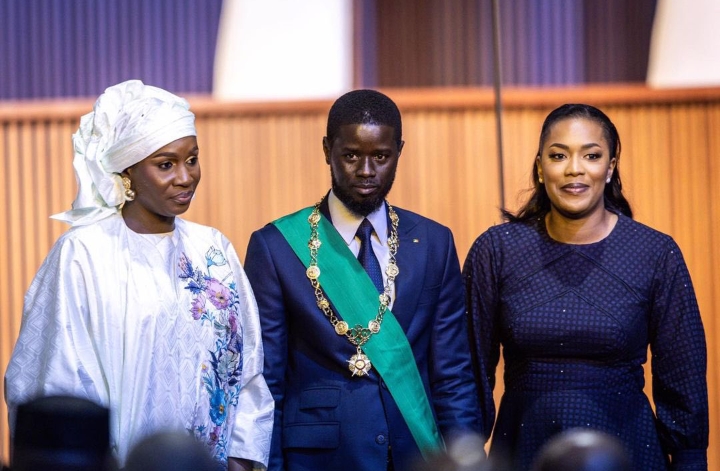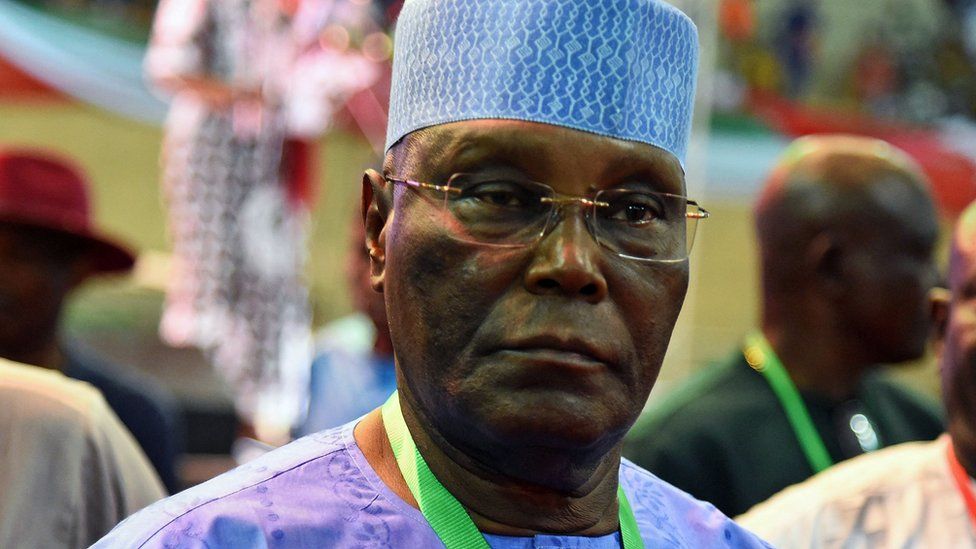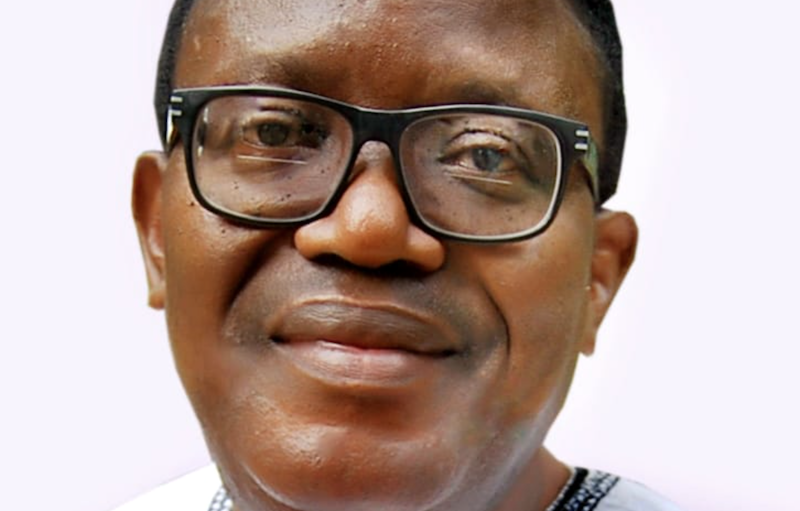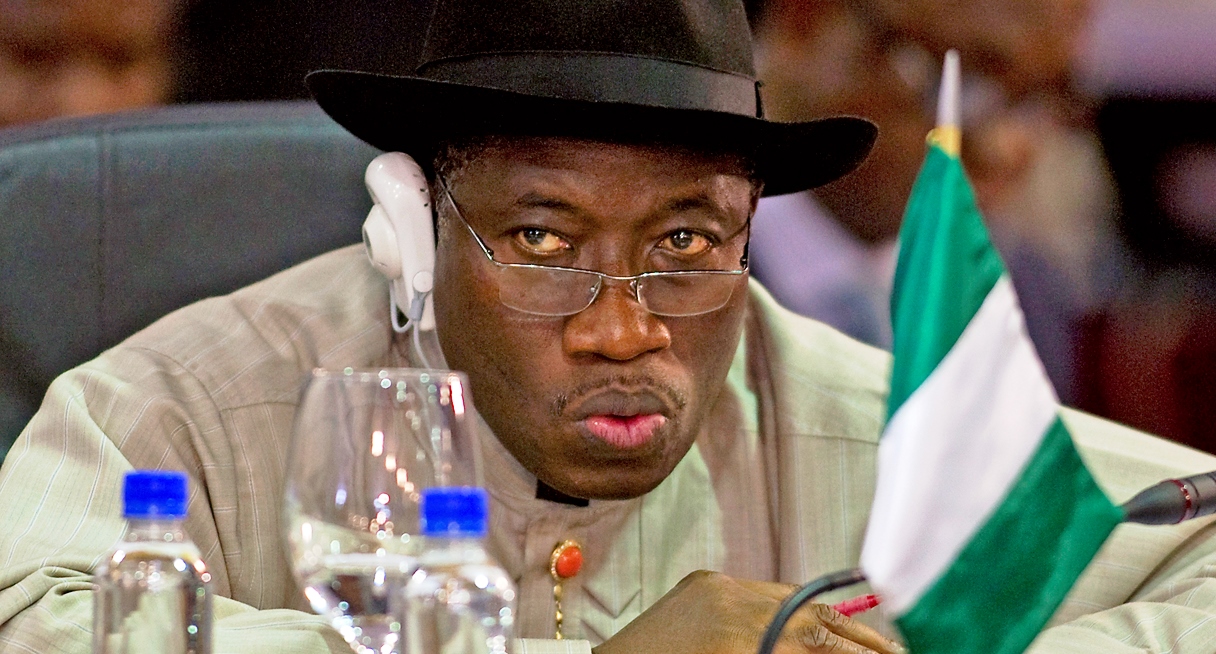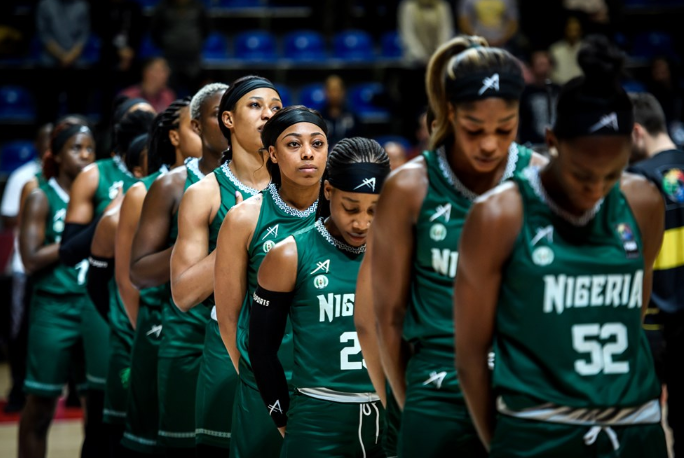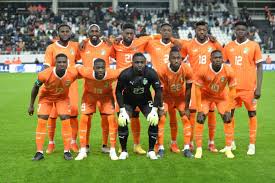Somewhere in the westernmost part of the continent of Africa, situated on the Atlantic Ocean coastline, is Senegal. On this Tuesday, the 2nd day of April in the year of the Lord 2024, a 44-year-old Basserou Diomaye Faye, whom some would argue is a political neophyte, is being sworn into office as the fifth (5th) president of Senegal since it gained independence in 1960.
He joins the pantheon of Africans who transitioned from prison to presidency. The first to transition from prison to prime minister is Osagyefoh Kwame Nkrumah of Ghana, who due to his political activism was arrested by British colonial authorities and sentenced to one year in prison. But he was released from prison to become the leader of government business and, in 1952, became the prime minister of the then Gold Coast, now Ghana.
The second time was in 1994-1999 when the iconic leader, Mr. Nelson Mandela, who had just finished serving a 27-year jail term in the notorious Robin Island prison, was ushered into the presidency of South Africa—an erstwhile apartheid enclave.
Mr. Mandela, a legal practitioner who was riled up by the policy of the rule of the white minority over the black majority foisted on his beloved South Africa, which is an antithesis to the grand norm of democracy—majority carries the vote.
That is a governance principle propounded and practiced by the whites in the Western hemisphere, with its origin in Greece and later perfected in France; but which they decided not to honor in South Africa. The contradiction was so glaring and extraordinary that the white minority, buffeted by white supremacists across Europe and North America, could not sustain their oppression and subjugation of the majority blacks by operating double standards. They had to succumb to the pressure of resistance spearheaded by the irrepressible Nelson Mandela, even while in incarceration.
The subsequent collapse of apartheid was so epochal that an autobiography written by Mandela about his experience in jail titled: “The Long Walk To Freedom” became a bestseller and even a smash-hit/box office movie.
The iconic Mandela is followed closely in the hierarchy of leaders who transitioned from prison to presidency by Chief Olusegun Obasanjo of Nigeria, 1999-2007. As readers may recall, he was clamped into jail by the military junta, Gen. Sani Abacha, who ruled with an iron fist over Nigeria from 1993-1998.
The fearsome and autocratic army general could not stomach what he deemed as Obasanjo’s meddlesomeness in his administration by criticizing his policies and programs, so he framed him up as a coup plotter. Thereafter, he convicted him, and he was on the death row.
Yes, Obasanjo was literally on his way to the firing squad for execution or about to have the horrific hangman’s noose put around his neck before he was saved by the forces that fed the fearsome Abacha with poisoned apples or tea, as the case may be, and he passed away before he could send Obasanjo to the gallows.
The background information above is critical to putting into context the circumstances that brought about Osagyefoh Nkrumah emergence in Ghana, Mr. Mandela’s rise in South Africa and Chief Obasanjo’s in Nigeria, compared to the current advent of Diomaye Faye in Senegal.
While the forces that propelled,Nkrumah, Mandela and Obasanjo to the top of political hierachy of the countries are both external and internal, in the case of Ghana,they made up their mind that self rule was not negotiable at that point in time; for South Africa, the black majority was sick and tired of white minority rule and sought the support of fellow Africans to help unshackle them; in Nigeria’s situation, although slightly different, it was a case of the people being fed up with military rule, therefore, they became determined to force the dictators back to the barracks with the active support from European and North American countries.
It is important to note that the motives for supporting the exit of the military from political power were not purely altruistic. The Europeans and Americans who backed the civil society activists at the time were primarily motivated by their desire to promote the concept of democracy in competition for the hearts and minds of Africans with the Union of Soviet Socialist Republics (USSR)—reduced to just Russia—and the Republic of China as well.
These global powers were also attempting to spread their socialist and communist ideologies across the African continent as a counterforce to Western democratic principles.
The situation in Senegal differs significantly as evidenced by the emerging self-consciousness among Africans, particularly those in francophone countries still under the yoke of France, their former colonizer.
These countries seek genuine freedom from France, which, despite granting independence to Senegal in 1960 (the same year Nigeria gained independence from Britain), has maintained a tight grip on its economy.
The French further entrenched itself in Africa by implementing the obnoxious policy of establishing the CFA franc zone, an economic and monetary area comprising France and 15 countries in Sub-Saharan Africa.
Frankly, the CFA franc zone, although touted as an economic stability mechanism by the French authorities, is actually akin to a straw fixed into the economic marrow of their former colonies, to practically suck their resources to boost the French economy and to the detriment of their former colonies.
To stay focused on the subject at hand, France’s relationship with her former colonies is a matter for discussion at another time. So, it is critical at this jucture to dwell further on how political persecution has increasingly acted as a catalyst for success at the polls for politicians , not just in Africa but beyond.
Before delving further into the events that led to Nkrumah clinching the prime minister position in Ghana in 1952, and 42 years after, Mandela becoming President of South Africa in 1994, five years later Obasanjo ascending to the position of president in Nigeria in 1999, and twenty-four years later Faye in Senegal in 2024 attaining the position of president of Senegal, it is imperative that we take a quick look at how persecution by incumbent presidents or heads of states (as the case may be) can bolster the chances of opposition figures to win sympathy and, subsequently, the votes to clinch the presidency in Africa and even in the almighty United States of America (USA).
Take, for instance, former President Donald Trump, the 45th president of the US, who served from 2016 to 2020 and is seeking election as the president of his country in the upcoming presidential election in November this year.
He is on record as the former American president who has been prosecuted—some would say persecuted—the most in the history of the US, and by the administration of the president to whom he lost the presidency barely four (4) years ago.
A statement on the website of the Public Broadcasting Service (PBS), a private, nonprofit American corporation whose members are the public television stations of the United States, offers a balanced assessment:
“Last year, Donald Trump became the first former president of the United States to be criminally indicted. Over the span of five months, he was indicted in four separate criminal cases and charged on a total of 91 felony counts”.
Continuing, it stated that the situation is so unprecedented that New Yorker magazine journalist Susan Glasser quipped in a recent documentary by PBS,that “Donald Trump is going to be the defendant and the candidate all wrapped into one”.
Given the enormity of the 91 felony counts/charges against him, Mr. Trump should by now have been in jail, not to mention being the presumed Republican Party’s candidate for the November 5 presidential election, a position he currently holds.
However, it appears that the more he is prosecuted or persecuted, the former US President Trump has been waxing stronger in the polls, deftly and thus far successfully navigating the political path to the White House. This path has been strewn with political landmines between now and when he narrowly lost it nearly four (4) years ago to incumbent President Joe Biden.
When one compares and contrasts Mr. Trump’s political travails in the US to Basserou Diomaye Faye’s ordeal in Senegal, it becomes evident that the political persecution experienced by Mr. Faye, who was jailed in April last year for a comment he made on Facebook criticizing the incumbent government for prosecuting the very popular opposition leader Ousmane Sanko, who is his mentor, resembles the witch-hunt that Mr. Trump is accusing the US authorities, particularly President Biden, of launching against him.
If not for the fact that the institutions of democracy in the US are very sturdy, there would basically be no difference between what is happening there and what occurred in Uganda when the incumbent president Yoweri Museveni was re-elected in 2021 after the opposition was muzzled. Museveni is alleged to have persecuted his main rival, popular musician Bobby Wine, who became a politician and was repeatedly jailed, and his wife was stripped naked by security agents allegedly on the state’s order in the process of repressing the opposition.
In fact, following the trend which began with Osegyefoh Nkruma,Mr. Mandela, transcending Chief Obasanjo, and now Mr. Faye, if the late Alexy Navalny, the popular opposition personality who recently died while serving a politically induced prison term in Russia, were allowed to contest against Russian President Vladimir Putin, one could wager a bet that Mr. Navalny might have prevailed, much like Mr. Faye just did in Senegal. The assertion above is in light of the fact that persecution seems to have become a facilitator for victory in the polls.
In any case, the success of the opposition in the polls in Senegal is underscored by the high level of political consciousness in that country. It is remarkable that unlike most African countries, Senegal’s political system was never truncated by any military coup d’état since its independence from France in 1960. Its consistency in the practice of democracy since 1960, when it secured independence, suggests that the concept of representative government must have taken root in that country.
This is reflected by the fact that both Faye and his mentor Sanko were released ten (10) days before the election, and the very popular Sanko had been incurably handicapped by being barred from contesting for public office as he had been convicted by the law courts for an offense bordering on sexual abuse.
This is perhaps similar to the manner in which the US has been trying to convict Mr. Trump of at least one out of the 91 counts of felony to stop him from participating as a candidate in the November polls. The highly popular Mr. Sanko literally had to lend his name, platform, and goodwill to the very inexperienced but unencumbered fellow victim of political persecution – Basserou Diomaye Faye to win the presidency.
This is how going to jail, which is a symbol of persecution of both Ousmane Sanko and Diomaye Faye by the outgoing president Macky Sall, became the badge of honor which the pair wore proudly and valiantly, and ultimately inspiring and encouraging the Senegalese youths who gave the mentee and mentor a resounding victory by garnering 54% of the votes cast on Sunday, March 24th.
The victory was to the surprise and likely consternation of President Sall, whose preferred candidate, Mr. Amodou Ba, was primed to take over from him after he failed in his attempt to, by hook or by crook, tweak with Senegal’s constitution in a bid to earn himself a third term in office.
Although on a much smaller scale, and following a similar trajectory since their exile was compelled by political persecution at home, but not necessarily after being jailed, some politicians have returned from exile to become the president of their country. The late Mr. Jerry Rawlings, who first led the country for a brief period in 1979 and became the president of Ghana from 1981 to 2001, is one such political activist.
Another one is then-Senator Bola Ahmed Tinubu, who, after returning to Nigeria in 1998 as a National Democratic Coalition (NADECO) chieftain-a democracy advocacy group which hounded the military that was running the government until they retreated to the barracks-and subsequently he became the governor of Lagos State in 1999. Although that happened at the sub-national level, he was to later become the president of Nigeria in 2023 with persecution by the enemies of democracy which is the military at that time-as badge of honor.
Discerning readers can now figure out the motivation for the ‘emilokan’ battle cry.
It may be of interest for political scientists to note the similarity between how ex-President Obasanjo tried unsuccessfully to transfer or confer his political goodwill (assuming it is significant) to the Labor Party, LP, 2023 presidential candidate Mr. Peter Obi.
This was demonstrated by Obasanjo rising from his seat at a public event during the election campaign period and placing Mr. Obi in the seat that he vacated, in a symbolic gesture of replacing himself with the LP candidate. This mirrors the ‘Ousmane is Faye’ campaign in Senegal, which succeeded phenomenally, resulting in the clinching of the presidency by Mr. Faye in the shadows of Ousmane with an impressive margin of 54%.
How Faye will fare as president of Senegal remains in the belly of time since the new president, a former local tax collector whose only political experience is a failed attempt at becoming the mayor of his hometown, is now saddled with the arduous task of salvaging his country from the monumental economic paralysis afflicting the once prosperous nation.
In conclusion, there are several lessons in the phenomenon of persecution as a badge of honor or a driving force for success at the polls by politicians that need to be studied further for better understanding by social scientists who may be able to do so with empirical evidence.
As some pundits in the US have observed, the more the former President Trump is prosecuted or persecuted, depending on the prism of the assessor of the political game unfolding in the US, the more popular he has become.
Finally, those in the business of publicity would argue that all news—positive or negative—is good news. This is particularly true for performing artists like musicians and movie actors, who covet publicity like oxygen, in the manner that humans need air to breathe.
Hence, some desperate artists and, to a large extent, unscrupulous political actors engage in bizarre activities such as exposing their nude videos or pictures on social media to generate buzz in the case of performing art celebrities or behaving erratically in parliament or public spaces by grandstanding and making absurd utterances to stir up a storm and create attention for themselves in the political space.
Without a doubt, politics is about touting capacity and the ability to lead. It is also significantly a popularity contest between individuals vying for public office. Having won the popularity contest aspect and sworn into office, Mr. Basserou Diomaye Faye now faces the challenge of leading his people with sound socio-economic policies would result in the prosperity of the senegales and progress of Senegal as a country .
This is particularly challenging because he had only ten (10) days after leaving prison to campaign and win the election. So, he may not have a blueprint on how to govern. Moreover, apart from being an ex-tax collector, Mr. Faye has never served in a public office. Herein lies the potentially new jeopardy that the Senegales may have to grapple with as the curtain falls on the outgoing president Macky Sall’s not so happy ending after his unsuccessful attempt to entrench himself or plant a surrogate as president.
Magnus Onyibe, an entrepreneur, public policy analyst, author, democracy advocate, and development strategist, and an alumnus of the Fletcher School of Law and Diplomacy at Tufts University, Massachusetts, USA, and a former commissioner in the Delta State government, sent this piece from Lagos, Nigeria. To continue this conversation and more, please visit magnum.ng.
